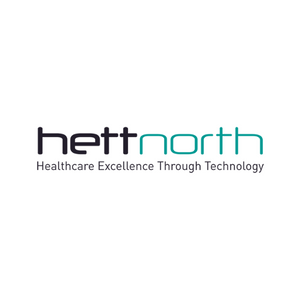The healthcare landscape in the United Kingdom is undergoing a significant transformation, with the adoption of Electronic Patient Records (EPRs) playing a pivotal role. These digital systems are revolutionising patient care by centralising and integrating patient information, enabling healthcare providers to access comprehensive and up-to-date data whenever and wherever they need it.
What is an Electronic Patient Record?
An Electronic Patient Record (EPR) is a comprehensive digital repository of a patient's health information, including clinical notes, diagnoses, medications, allergies, vaccines, and test results. It serves as a single source of truth, providing healthcare professionals with a holistic view of a patient's health history, enabling them to make informed decisions and deliver more personalised care.
Benefits of EPRs in the NHS
NHS England have stated that they wish all NHS hospitals to have an EPR by 2025. The implementation of EPRs across the NHS has brought about numerous benefits, including:
Improved patient safety: EPRs reduce the risk of medication errors and adverse drug events by providing clinicians with real-time access to patient allergies, drug interactions, and current medications.
Enhanced patient care: EPRs facilitate seamless care coordination across different healthcare settings, enabling providers to collaborate effectively and avoid duplication of tests or procedures.
Increased efficiency: EPRs streamline administrative tasks, such as appointment scheduling, prescription refills, and referrals, freeing up clinician time to focus on direct patient care.
Enhanced data-driven decision-making: EPRs provide valuable insights into patient outcomes, enabling healthcare providers and organisations to identify trends, allocate resources more effectively, and improve overall patient care.
Navigating the Road to NHS Electronic Patient Record Maturity
To fully realise the potential of EPRs and address potential challenges the NHS has embarked on a journey towards EPR maturity. This involves:
Harnessing data analytics: Utilising data insights from EPRs to drive continuous improvement in patient care, service delivery, and operational efficiency.
Fostering interoperable systems: Enabling seamless data exchange between different EPR systems and healthcare providers to ensure a unified patient view.
Empowering user engagement: Encouraging healthcare professionals to participate in EPR design, development, and implementation to ensure user-centric solutions.
NHS EPR systems are revolutionising the delivery of healthcare in the UK. Senior NHS staff, have the opportunity to shape the future of EPR implementation across the NHS and ensure that these systems deliver on their promise of improved patient care, enhance efficiency, and effectively utilise data to drive better decision-making. By embracing the digital transformation and empowering your colleagues to utilise EPRs effectively, the NHS can move towards a more patient-centered healthcare system in the future.
Find out More about Electronic Patient Records at HETT North.
Join us at HETT North on 28th February in Manchester to find out more about improving patient experience.
Register for your FREE pass now to enjoy:
- 40+ hours of CPD-accredited content across 6 content streams
- 100+ innovative suppliers
- 1-2-1 meeting opportunities with over 1,400 like-minded peers
- 100+ expert speakers
%20(1).png?width=500&height=58&name=HETT%20insights%20logo%20RGB-04%20(1)%20(1).png)


